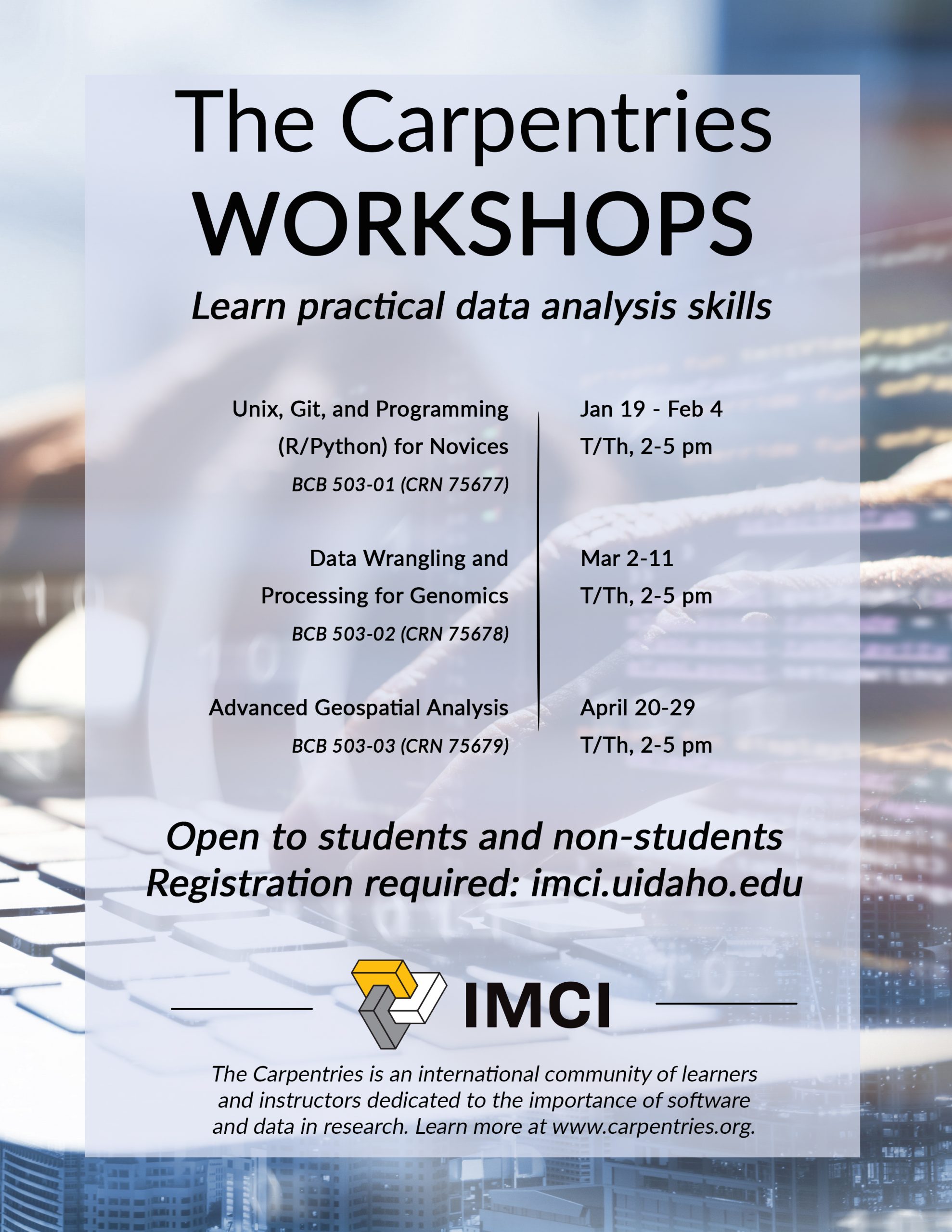IMCI invites applications for two of our initiatives. Both initiatives support research that involves modeling from any field. Also note that we are hosting a Brown Bag Lunch discussion of DAGs specifically for researchers from CLASS and other colleges that may be unaware of the opportunities we offer – see details below. Anyone who wants to learn more about out Data Access Grants is welcome to attend.
Data Access Grants – DAGs
To enable researchers to generate preliminary data for research grant proposals, IMCI is awarding Data Access Grants (DAGs). These grants do not cover personnel; rather, they cover costs (generally <$4000) to generate needed data. Examples of services and items we will consider include DNA sequencing, ddPCR, cryo-EM, mass spectrometry, reagents for an experiment, data purchase, a pilot survey, or software. We will consider other requests in the range of a few thousand dollars with strong justification related to a specific modeling-based grant proposal. Any area of research that involves modeling will be considered. DAG deadlines will occur 4 times per year. The next deadline is October 12th. Review the guidelines for information on how to apply.
A Brown Bag Lunch discussing DAGs is scheduled for September 21st at 12:30 by Zoom https://uidaho.zoom.us/j/83682698077.
Modeling Access Grants – MAGs
IMCI supports individuals or groups preparing to submit grant proposals within the next year through the Modeling Access Grant (MAG) Program. MAGs do not provide funding but rather expertise in the modeling aspects of a grant proposal, including developing preliminary models for inclusion in the proposal. Any area of research that involves modeling will be considered. Applicants should consult IMCI Associate Director Marty Ytreberg prior to developing a MAG proposal to obtain advice on whether current Collaboratorium resources match the investigator’s needs. MAG proposals are short and will be accepted anytime during the year; the approval process can generally be completed within two weeks of receipt of the final proposal.



